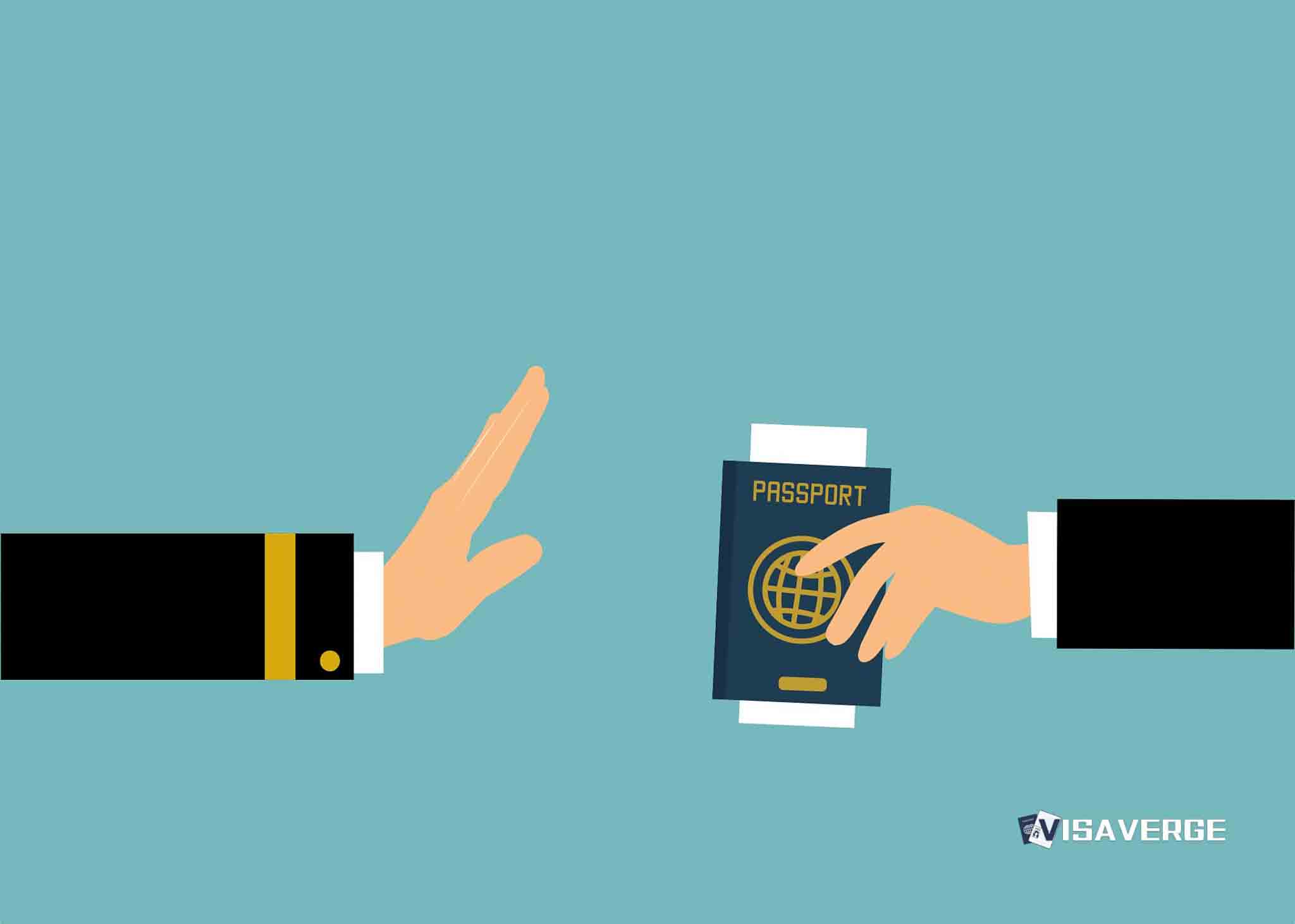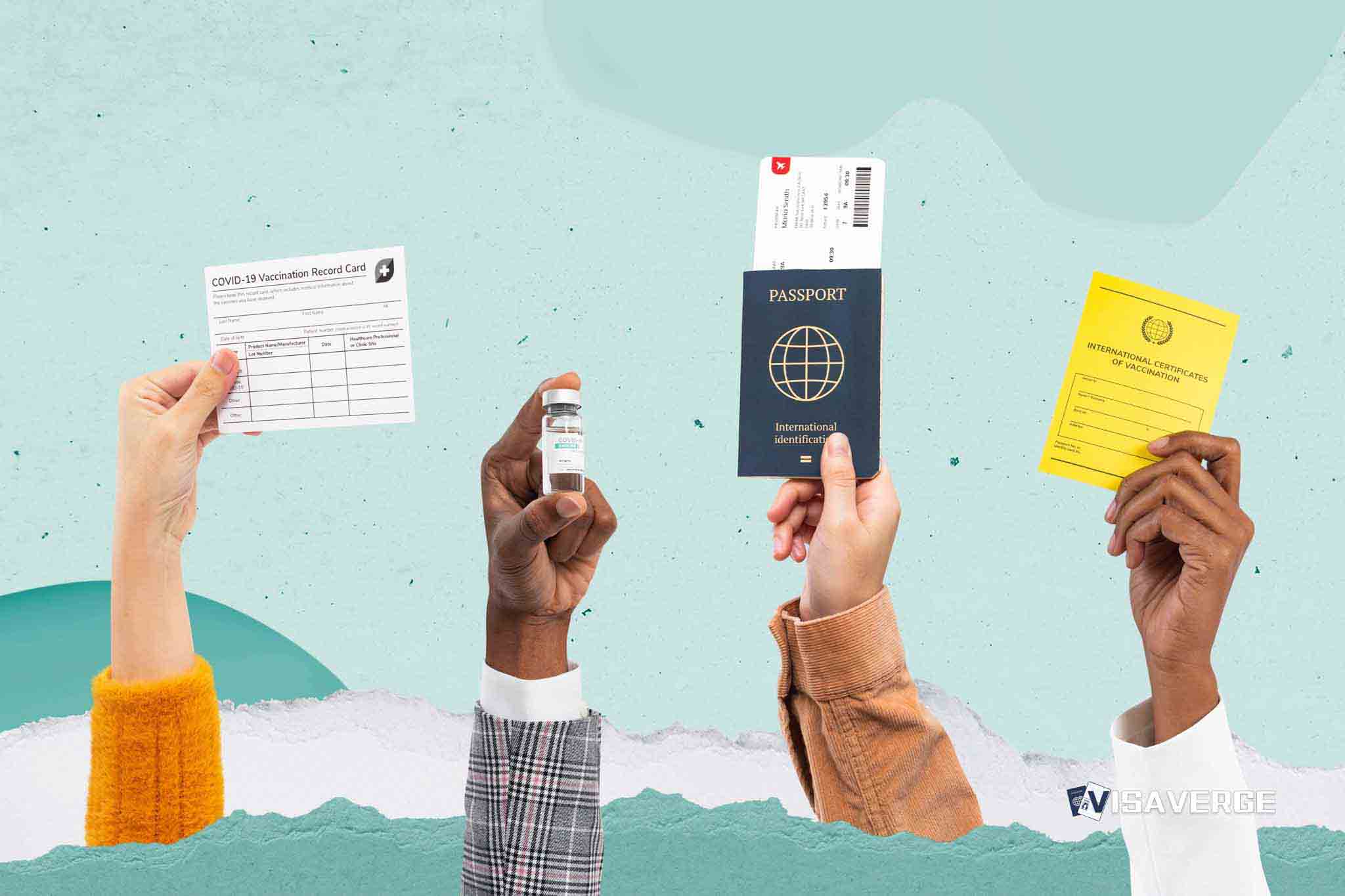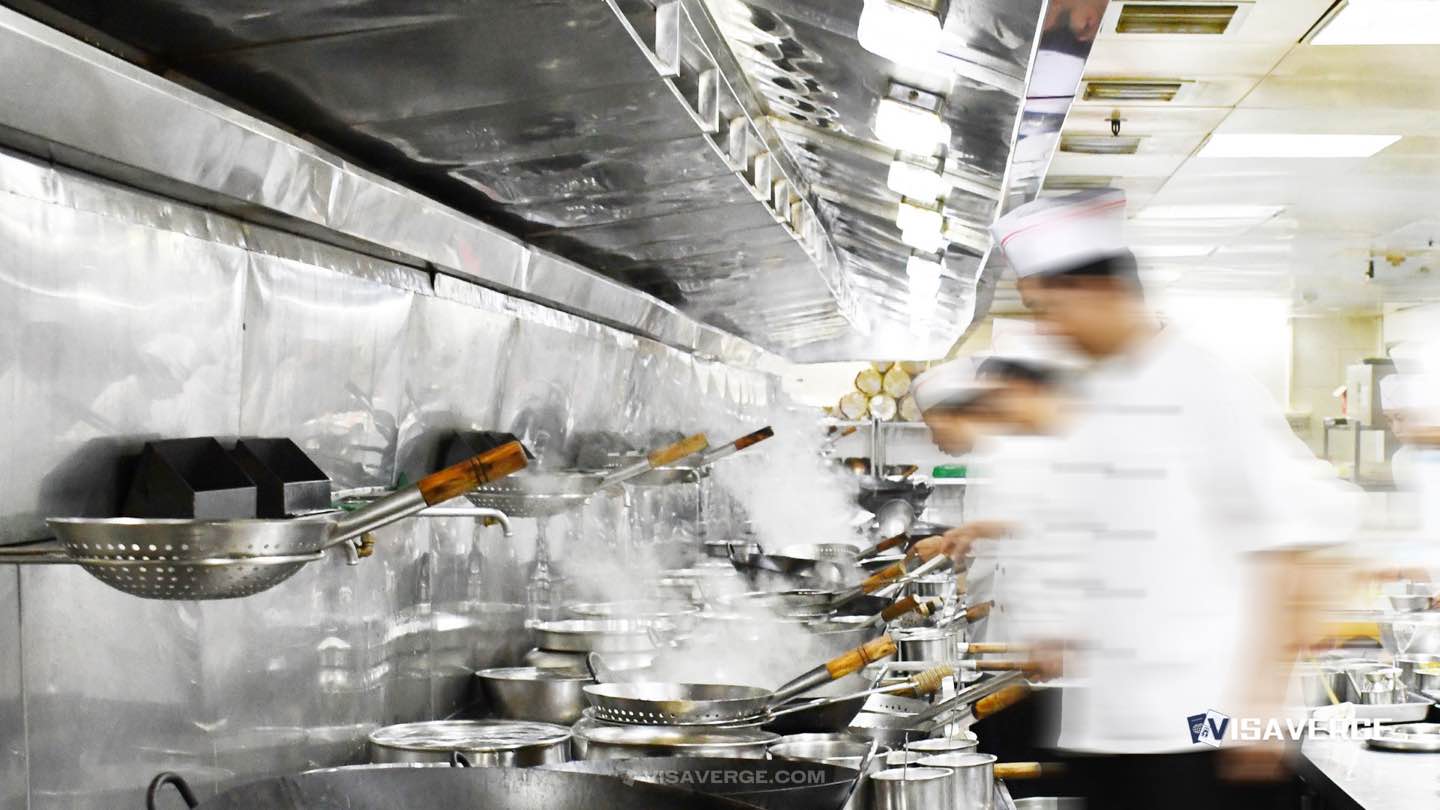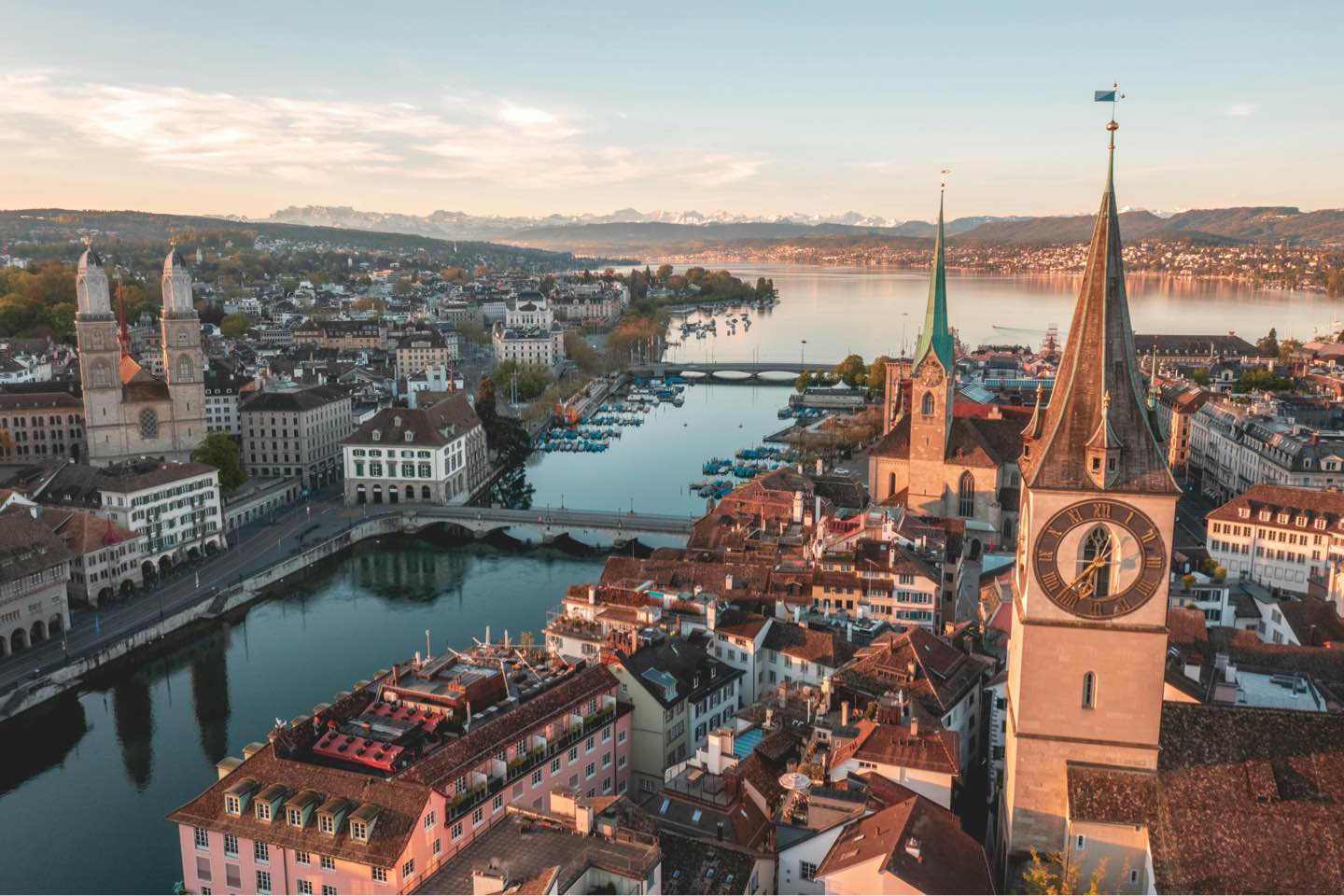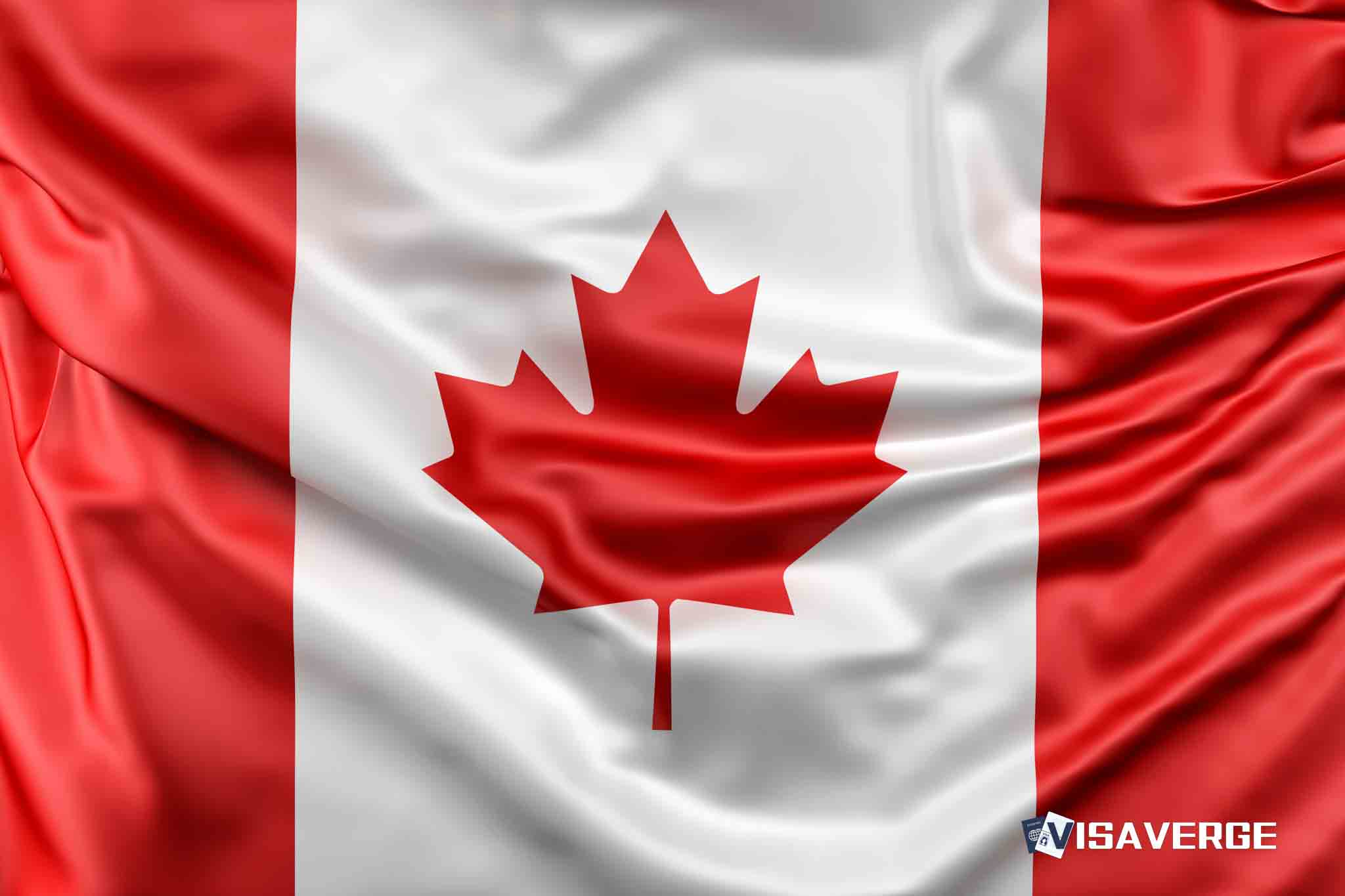(SILICON VALLEY) The U.S. Department of State will end most interview waivers—known widely as “Dropbox”—for nonimmigrant visas on September 2, 2025, forcing many H-1B professionals to attend in-person interviews abroad for both renewals and new visas. Announced on July 25, 2025, the change affects workers and families across age groups, including children under 14 and seniors over 79, who previously avoided interviews.
For Silicon Valley, which relies heavily on H-1B talent, the rule is set to upend travel plans, raise costs, and slow returns to work. In 2024 alone, more than 39,000 H-1B approvals were tied to Silicon Valley, with Indian nationals making up the largest share. “This is going to entail a delay in their processing, it can be costly, because [visa holders] may be stuck… and they won’t be able to get back to work,” said Bill Hing of the University of San Francisco.

According to analysis by VisaVerge.com, the new policy reverses the pandemic-era system that let many visa holders renew by mail, without appearing at a consulate. It also narrows the interim rollback made in February 2025, when State had already limited many waivers to cases filed within 12 months of visa expiration.
Policy changes and narrow exceptions
State’s rule applies broadly to H, L, O, F, J, and M categories; most H-1B and H-4 applicants should expect to interview in person at a U.S. consulate abroad starting September 2, 2025. The government says the move returns screening to pre-pandemic norms and supports security and fraud prevention as operations stabilize.
Only a few groups may still get interview waivers, and even then it’s up to consular discretion:
- Diplomatic/official visas (A-1/A-2), certain C-3, G-1–G-4, NATO-1–NATO-6, and TECRO E-1.
- Limited B-1/B-2 renewals (including Mexican Border Crossing Cards) within 12 months of expiration, if all strict criteria are met:
- Application submitted in the country of nationality or residence
- Applicant was at least 18 at issuance of the prior visa
- No prior refusal (unless overcome/waived)
- No sign of ineligibility
Age-based exemptions are gone. That means children and elderly applicants must appear like everyone else.
One open issue remains: posts have not uniformly clarified how they’ll handle “Dropbox” appointments set on or after the effective date. Some cases may be converted to interviews or rescheduled.
For official visa guidance and post-specific updates, see the U.S. Department of State’s U.S. Visas site: https://travel.state.gov/content/travel/en/us-visas.html
Why Silicon Valley faces sharper risk
Silicon Valley ranks second nationally for H-1B approvals over recent years, making the region especially exposed to new interview bottlenecks. Workers may need to:
- Travel halfway around the world (often to India),
- Compete for limited appointment slots,
- Wait through possible administrative processing before returning to the United States 🇺🇸.
Dependents in H-4 status must also interview, complicating family logistics, school calendars, and caregiving.
Employers warn of ripple effects on projects, hiring, and budgets:
- Extra airfare and lodging costs, plus longer time abroad
- Fewer consular appointments in high-demand countries like India and China
- Risk of 221(g) administrative processing that can strand staff for weeks
- HR scheduling challenges for onboarding and business travel
Tech firms that depend on contractors or end-client placements face added questions about worksites and job duties at the window, raising the stakes for document preparation and consistent answers.
Steps applicants and employers should take now
For applicants planning H-1B travel this year:
- If your local post still allows it, file and try to use Dropbox before September 2, 2025. Slots are tight, and many posts already capped waivers to 12 months from expiration.
- Expect in-person interviews after that date. Check your consulate’s website for appointment release dates and local rules.
- Complete the DS-160 online application and keep the confirmation page. Official information: https://travel.state.gov/content/travel/en/us-visas/tourism-visit/ds-160-online-nonimmigrant-visa-application.html
- Bring proof of status and employment:
- Form I-797 approval notice (official info: https://www.uscis.gov/forms/filing-guidance/notice-of-action-form-i-797)
- Recent pay stubs, W-2s, degree certificates
- Employer letter explaining your job, duties, and where you work (onsite, hybrid, or remote)
- If you work at a client site, carry end-client letters or statements of work that match your petition and Labor Condition Application.
- Be ready to explain your specialty occupation in plain language and to describe “dual intent” for H-1B: you may seek permanent residence later, but you still must show a valid nonimmigrant purpose at visa issuance.
For families:
- H-4 dependents generally must appear in person.
- Pack marriage and birth certificates, school letters, and copies of the principal’s approval and pay records.
For employers and HR teams:
- Map who will need visa stamping through early 2026. Alert staff to the end of routine Dropbox and plan for interview travel windows.
- Build buffers around product launches and deadlines. Avoid scheduling critical deliverables during likely visa trips.
- Standardize interview packets: job descriptions tied to wage levels, worksite addresses, client letters, and hybrid/remote policies.
- Track post-by-post processing times and 221(g) trends, especially in India (Mumbai, Delhi, Hyderabad, Chennai, Kolkata).
- Budget for higher travel costs and possible extended stays abroad.
- Note: a new “visa integrity fee” has been referenced by practitioners but had not taken effect as of late July 2025; watch for formal rulemaking.
Practical reminders and tips
- Your U.S. status can continue if your I-94 and I-797 remain valid, even if your visa stamp is expired. You only need a new visa to re-enter after travel.
- Choose your post carefully. Some third-country posts accept limited cases, but many prefer or require applicants to appear in their country of nationality or residence.
- Book early. Appointment supply can change without notice, and prime slots may open in batches.
- Be meticulous: consistent paperwork and clear, honest answers at the interview reduce chances of delay.
Important: Guidance on how posts will treat “Dropbox” bookings that fall on or after September 2, 2025 is still pending in many locations. Applicants should watch for conversion notices and post-specific instructions.
What could change next
- Consulates may add capacity or special Saturday hours in high-demand posts, but applicants should not rely on this.
- Further guidance is expected on posts’ handling of “Dropbox” bookings scheduled on or after September 2, 2025.
- The State Department may issue fee rules tied to visa integrity; until formal rulemaking, pay only the current MRV fee and any local charges listed by your post.
For Silicon Valley employers, the near-term task is discipline and communication: keep project managers, travel coordinators, and counsel aligned on who plans to travel and when, and lock down documents well in advance. For workers, honest, clear answers at the interview—and paperwork that matches the petition—remain the best ways to reduce the chance of delay.
This Article in a Nutshell
Effective September 2, 2025, Dropbox ends for most nonimmigrant visas, forcing in-person interviews. Silicon Valley faces travel, scheduling, and cost disruptions. Employers must prepare documentation, adjust hiring timelines, and budget for travel. Applicants should attempt renewals before the deadline, confirm consular rules, complete DS-160, and carry I-797 and pay records.






